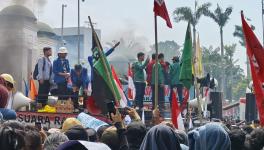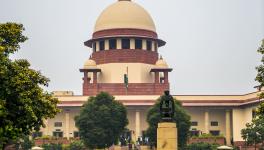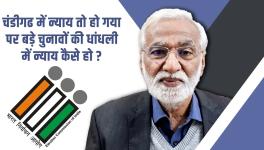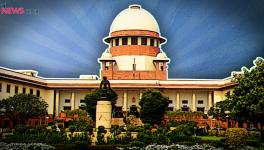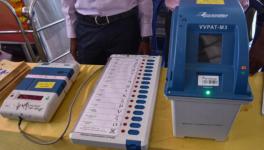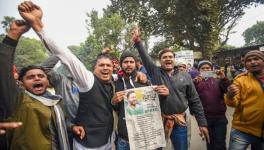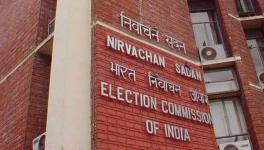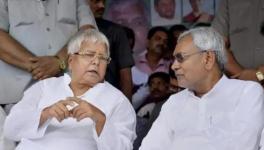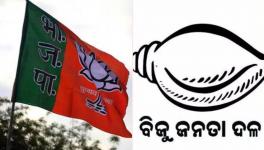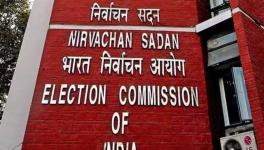Angola's General Elections 2022: What You Need to Know
Joao Lourenco has been Angola's president since September 2017
Incumbent Joao Lourenco is under pressure as the election draws near because his rival in the presidential race, Adalberto Costa Junior, is ahead in most opinion polls.
In the larger cities, where most Angolans live, and among the youth, the level of dissatisfaction with Lourenco and his government, and the desire for a political change, is pronounced.
The general election is expected to be the tightest contest since democratic elections were first introduced in 1992.
The parties and the candidates
Eight political formations — seven parties and one coalition — are vying for the 220 seats in the National Assembly.
The ruling People's Movement for the Liberation of Angola (MPLA) is headed by presidential incumbent Joao Lourenco and the opposition National Union for the Total Independence of Angola (UNITA) is headed by presidential candidate Adalberto Costa Junior.
Adalberto Costa Junior heads the National Union for the Total Indepedence of Angola (UNITA) party
Then there is also the National Liberation Front of Angola (FNLA), Nationalist Party for Justice in Angola (P-NJANGO), Humanist Party of Angola (PHA), Social Renewal Party (PRS), National Patriotic Alliance (APN) and Broad Convergence for the Salvation of Angola – Electoral Coalition (Casa-CE).
The top candidate of the party that wins the most votes is elected president, in accordance with Angola's Constitution. Joao Lourenco and Adelberto Costa Junior are the frontrunners in 2022.
Florbela 'Bela' Malaquias of the Humanist Party of Angola (PHA) is the first woman to run for president in Angola
The voters
More than 14 million voters are eligible to take part in the general election, according to the National Electoral Commission (CNE).
The election is the fourth in Angola's post-war period and the fifth electoral process since 1992. This election marks the first in which Angolans living abroad will be able to vote.
In recent weeks, civil society groups have repeatedly complained about mistakes in the electoral process. For example, millions of deceased citizens are still included in the electoral lists.
In addition, many voters have been assigned polling stations very far from their places of residence. This is especially true for Angolans in the diaspora.
An anti-government demonstration in Angola's northwestern Bengo Province in 2021
National and international observers
The election will involve hundreds of observers. According to the CNE, the limit of 2,000 national and international observers has been reached. The NEC had extended invitations to observers from organizations and blocs such as the European Union, the African Union, the Community of Portuguese-speaking Countries (CPLP), Southern African Development Community, US Carter Center, Economic Community of West African States and the International Conference for the Great Lakes Region.
An poster of the ruling MPLA in Angola's capital Luanda
Members of Parliament
The National Assembly consists of 220 deputies. A total of 130 representatives are elected from the national lists of the parties, according to the number of votes obtained by each political formation in the elections. The remaining 90 parliamentarians are elected on the basis of provincial lists, with each of the 18 provinces electing five deputies.
Currently, Angola's ruling MPLA has an absolute majority, occupying 150 seats in the National Assembly, followed by the opposition UNITA, with 51 deputies, and the Casa-CE, with 16. The PRS has two deputies and FNLA has one.
The MPLA has been in power in Angola since independence from Portugal in 1975.
The president of Angola heads the government and the country's armed forces. The Constitution also stipulates that the president "promotes and guarantees the regular functioning of state bodies, appoints judges, prosecutors, ministers and ambassadors, and "represents the nation internally and internationally."
The president is not directly elected. The first on the list of the most popular party is appointed president.
Campaign issues
Issues such as unemployment, education and vocational training play a major role in the Angolan election campaign. In addition, there is a lot of talk about poverty in general and about the best way to combat it.
The issue of corruption also plays an important role. The ruling MPLA has been accused of using state resources to campaign for reelection in 2022. President Lourenco had made the fight on corruption a key issue in his first election campaign in 2017. He promised new compliance rules for state-owned enterprises, especially for the oil industry.
Along these lines, powerful former generals have been targeted and not even the children of his predecessor have been spared.
Isabel dos Santos is the daughter of Angola's former president
Isabel dos Santos, the daughter of ex-president Jose Eduardo dos Santos, had to give up her board position at the state oil company Sonangol. She is being investigated for embezzlement and corruption. Her brother, Jose Filomeno dos Santos, who at the time was managing the state oil fund, was sentenced to prison due to mismanagement and corruption. Another daughter of the former president, Welwitschia dos Santos, lost her parliamentary seat and went abroad.
Jose Eduardo dos Santos was Angola's president for 38 years before he was succeeded by Joao Lourenco
The international dimension
During the election campaign, the main rivals accused each other of "making pacts with corrupt people." The ruling MPLA implicitly accused UNITA of having its election campaign financed by the children of the recently deceased ex-president dos Santos. MPLA provided no evidence to support its claim.
The opposition party describes Lourenco's anti-corruption measures as "cosmetic" and aimed only at publicity. THese have no impact on his own allegedly corrupt cronies, they argue.
Angola is rich in oil, gas, diamonds and other ressources. It is also a key partner in the global effort to stabilize the Great Lakes Region. The country has tried for years to mediate in the conflict between the Democratic Republic of Congo and Rwanda. Angola is also a key partner of the US and the EU, mainly through economic ties.
Edited by: Benita van Eyssen
Get the latest reports & analysis with people's perspective on Protests, movements & deep analytical videos, discussions of the current affairs in your Telegram app. Subscribe to NewsClick's Telegram channel & get Real-Time updates on stories, as they get published on our website.















